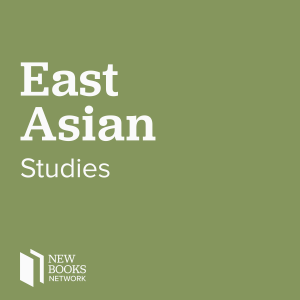
New Books in East Asian Studies
Society & Culture

Nathaniel Isaacson, "Celestial Empire: The Emergence of Chinese Science Fiction" (Wesleyan UP, 2017)
 2022-05-31
2022-05-31
Download
Right click and do "save link as"
Chinese science fiction has been booming lately through the translation of books like Liu Cixin’s The Three-Body Problem, but where did the current surge come from? In Celestial Empire: The Emergence of Chinese Science Fiction (Wesleyan University Press, 2017), Nathaniel Isaacson introduces the genre’s origins in China and tracks its development from roughly 1904 to 1934. During that period, China’s final dynasty, the Qing, came to an end amid European nations’ increasing control of China, the Republic of China was established, and Japan conquered Manchuria while the Chinese Communist Party was established and grew into a major political-cultural force. Isaacson connects these political shifts to the establishment of science fiction in China through key works by authors like Lu Xun, Wu Jianren, and Lao She. In so doing, he shows how Chinese science fiction is connected to Edward Said’s concept of Orientalism, depicting authors’ struggles to subvert Orientalist attitudes toward China. Isaacson traces how Orientalism and its attendant colonialist projects were intertwined with Western scientific knowledge in such a way as to make science fiction a fruitful medium for cultural debates over China’s role in the world.
Nathaniel Isaacson is an Associate Professor of Modern Chinese Literature in the Department of Foreign Languages and Literature at North Carolina State University. His research interests include the history of Chinese science and science fiction, Chinese cinema, cultural studies, and literary translation. Nathaniel has published articles and translations in the Oxford Handbook of Modern Chinese Literatures, Osiris, Science Fiction Studies, Renditions, Pathlight, and Chinese Literature Today. His book, Celestial Empire: the Emergence of Chinese Science Fiction (2017), examines the emergence of sf in late Qing China. His current book project, Moving the People: the Aesthetics of Mass Transit in Modern China, examines narratives of development as a theme in modern Chinese literary and visual culture primarily through the figure of the train.
Amanda Kennell is an Assistant Teaching Professor of International Studies at North Carolina State University. She writes about Japanese media and is currently completing Alice in Japanese Wonderlands: Translation, Adaptation, Mediation, a book about contemporary media and Japanese adaptations of Lewis Carroll’s Alice in Wonderland novels.
Learn more about your ad choices. Visit megaphone.fm/adchoices
Support our show by becoming a premium member! https://newbooksnetwork.supportingcast.fm/east-asian-studies
view more
More Episodes
012345678910111213141516171819
Create your
podcast in
minutes
- Full-featured podcast site
- Unlimited storage and bandwidth
- Comprehensive podcast stats
- Distribute to Apple Podcasts, Spotify, and more
- Make money with your podcast
It is Free
- Privacy Policy
- Cookie Policy
- Terms of Use
- Consent Preferences
- Copyright © 2015-2024 Podbean.com





